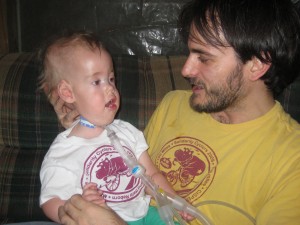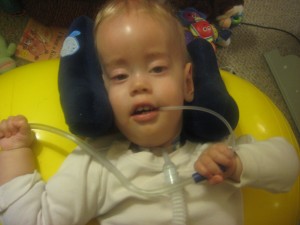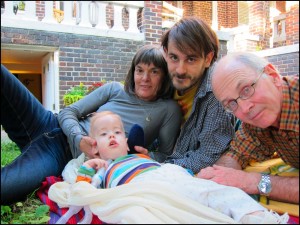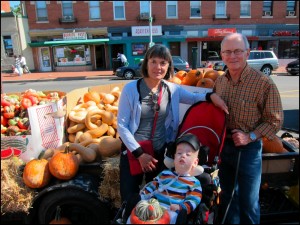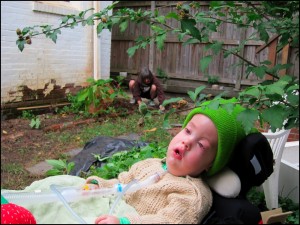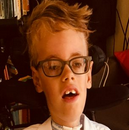December 4 Event — Save the date! (Oct. 27)
We’ve mentioned a couple of times the book “My Baby Rides the Short Bus,” an anthology written by parents of kids with disabilities. It’s been such a helpful and moving book to us that we’re organizing an event with one of the book’s editors, Jen Silverman. So if you’re in or anywhere near Washington DC, please save the date! December 4, 5-7 pm.
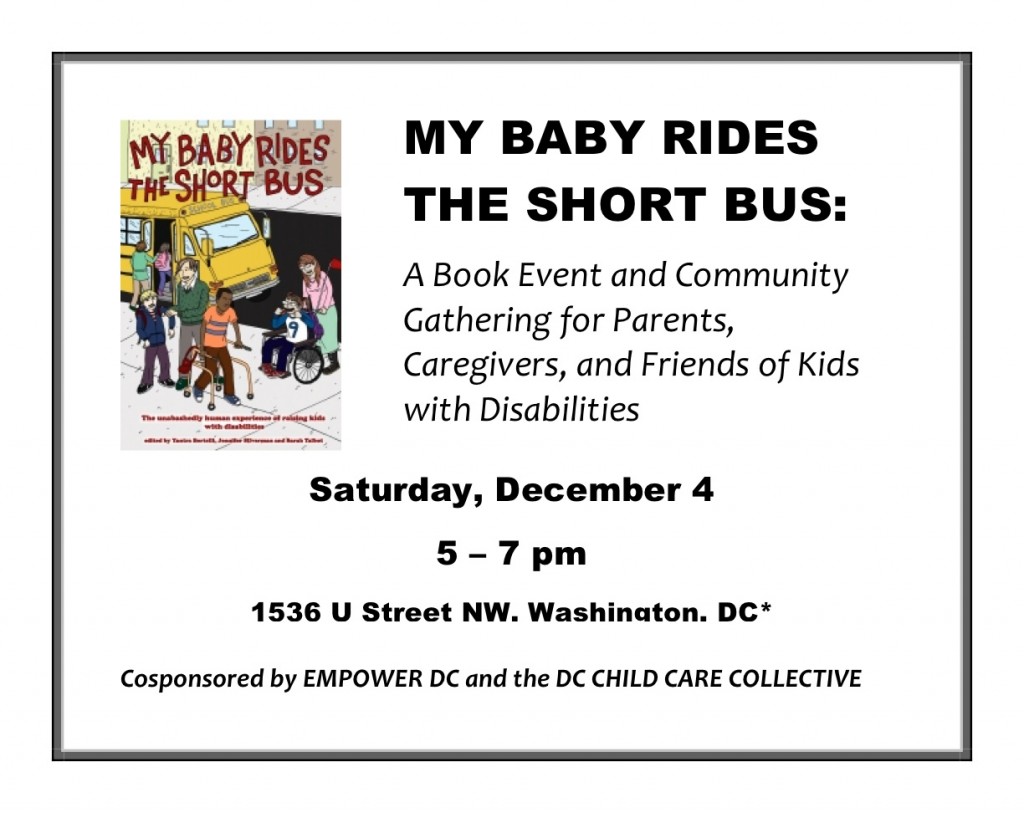 We’re excited about the opportunity the event will give us to hopefully gather lots of people who care about kids and disability and rights and justice. Empower DC’s Child Care for All campaign is co-sponsoring the event, and a number of parents in that group have been organizing together for years to push the city for more public resources for special needs families. Jen and possibly one other author from the book will read and share their experiences. And who knows — we may even share something about what Lucas has taught us so far.
We’re excited about the opportunity the event will give us to hopefully gather lots of people who care about kids and disability and rights and justice. Empower DC’s Child Care for All campaign is co-sponsoring the event, and a number of parents in that group have been organizing together for years to push the city for more public resources for special needs families. Jen and possibly one other author from the book will read and share their experiences. And who knows — we may even share something about what Lucas has taught us so far.
As if the blog weren’t material enough to choose from, there’s now even more written about Lucas. Krista has been taking an online writing class for the past month, producing more stories and reflections about our lives as a family. Here’s one of the short pieces Krista wrote — part of a longer sequence of snapshot stories from life in the hospital last year.
———–
October, 2009
There are three picnic benches and a small gazebo that sit mostly abandoned behind Children’s Hospital. They are dwarfed and out of place sitting near the ambulance emergency entrance to the hospital and out of any hospital visitors’ or workers’ path into our out of the building. Those tables became a resting and grounding place for Burke and I – a place I now remember with strange nostalgia when I think back on those three longest months of my life.
I remember sitting at the picnic table, calling friends. I needed the grounding that would come from talking to people outside the hospital, friends who knew me and believed in me and who would love me no matter what came out of my mouth, even if nothing came out of my mouth. Once, when Lucas was two months old, I called Alice and told her “I think I’m a better person already.” She smiled on the other end of the phone and assured me that I was. And that this moment of seeing something positive about my baby’s illness was not about denial, or just an illusion, but something real that I could also hold onto.
I told Alice that day about looking at the disabled children we saw in the hallways – the ones with extra tubes, with big wheels chairs, with braces and canes and walkers, with drool and drooping jaws and loud voices. Burke and I saw these kids in the radiology waiting room we walked through every day on our way to the cafeteria and knew, without saying so, that we both wondered if Lucas would look like them one day. And I was ashamed to realize that every time before now that I’d seen kids with obvious disabilities, especially cognitive disabilities, I distanced myself – quickly and without even stopping to notice – and assumed that it would never be me.
But now, as I walked past these kids and their awkwardness and their families, I not only knew that could be me one day, but I realized that despite all our hopes that Lucas would recover and be a “typical” kid, I would love Lucas no matter how different he looked. And that, by extension, I loved these unknown kids and their families and wished I could protect them from people who thought like I had. Like a religious convert who’s suddenly found Jesus, I was filled ideas of evangelism. What if everybody could feel this? What if we all could know that all people with all kinds of abilities and disabilities are as perfect and loveable as everyone else?
For better or for worse, those moments of lucidity and exuberance were short lived, and I had no energy for proselytizing. By the time I got to the cafeteria I was usually distracted by the task of reheating our lunch in the dirty public microwave ovens and the other menial tasks of surviving each day.
